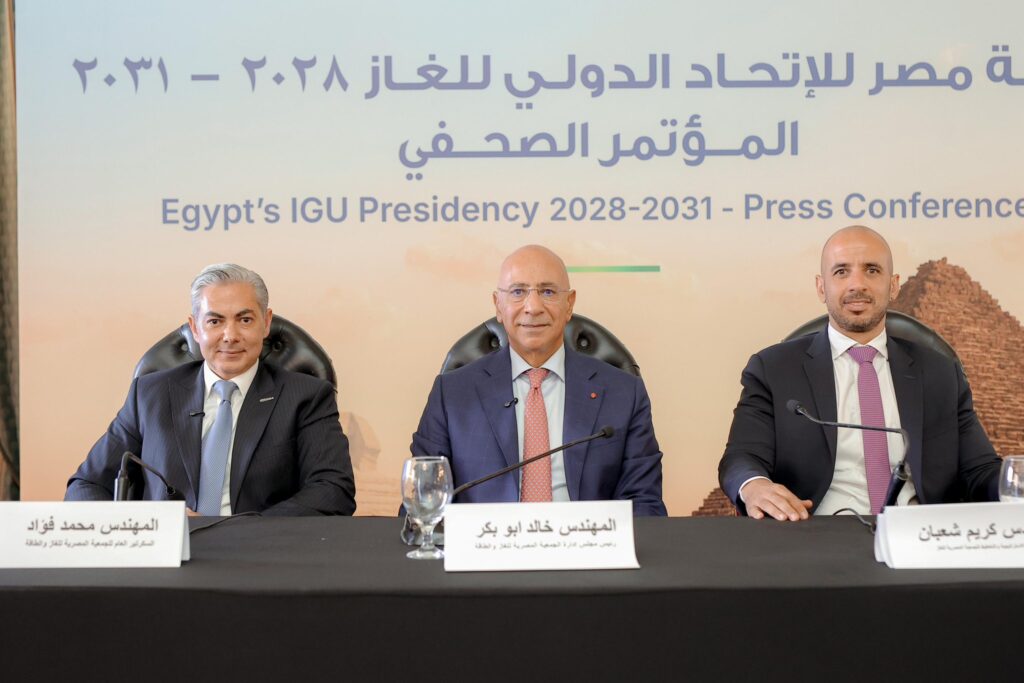Egypt became the first African and Arab country to lead the International Gas Union (IGU) in a six-year period after a majority of the IGU’s 94 members voted in favor ot its becoming the union’s vice president (2025–2028) followed by the Presidency (2028–2031).
Established in 1931, the IGU is a global non-profit organization that leads global efforts to position gas as a pillar of a secure, sustainable, and affordable energy future. Egypt is represented in the IGU by the Egyptian Gas & Energy Association (EGEA).
The announcement was made in a press conference where most of EGEA’s senior officials presented their viewpoints on the role the association should be playing in the next 6 years.
Khaled AbuBakr, Vice President of the International Gas Union(IGU) and Chairman of EGEA explained the main role of the IGU as a global organization and its objectives as well as the reasons behind Egypt’s being elected to this role.
“Egypt has 50 years of experience in the natural gas industry, which boosted its position to engage in the IGU elections and win the presidency. Egypt also has a longstanding 36-year contribution to the IGU. It chaired IGU’s committees and hosted related events.”
Mohamed Fouad, Secretary General of EGEA, and the Egyptian Presidency Team Director for the IGU, explained the strategy members of the IGU’s team adopted to win the elections.
“When preparing the Egyptian program, our forward-looking vision focused on a nine-year term, not just the standard three-year term.”
Also, “Over the 12 months of preparation of the Egyptian program, we considered the diverse policies, economies and needs of the different regions. We had to represent the world as a whole.”
As for Egypt’s goals during the coming six years, Karim Shaaban, Vice Chair of the Coordination Committee, and member of the Executive Committee of the IGU, and Head of the Strategy and Planning Committee of EGEA, said that “When analyzing the main problems of the natural gas industry cross the different member countries, we found that they are summarized in three pillars; energy price, energy security and energy sustainability,” he said.




